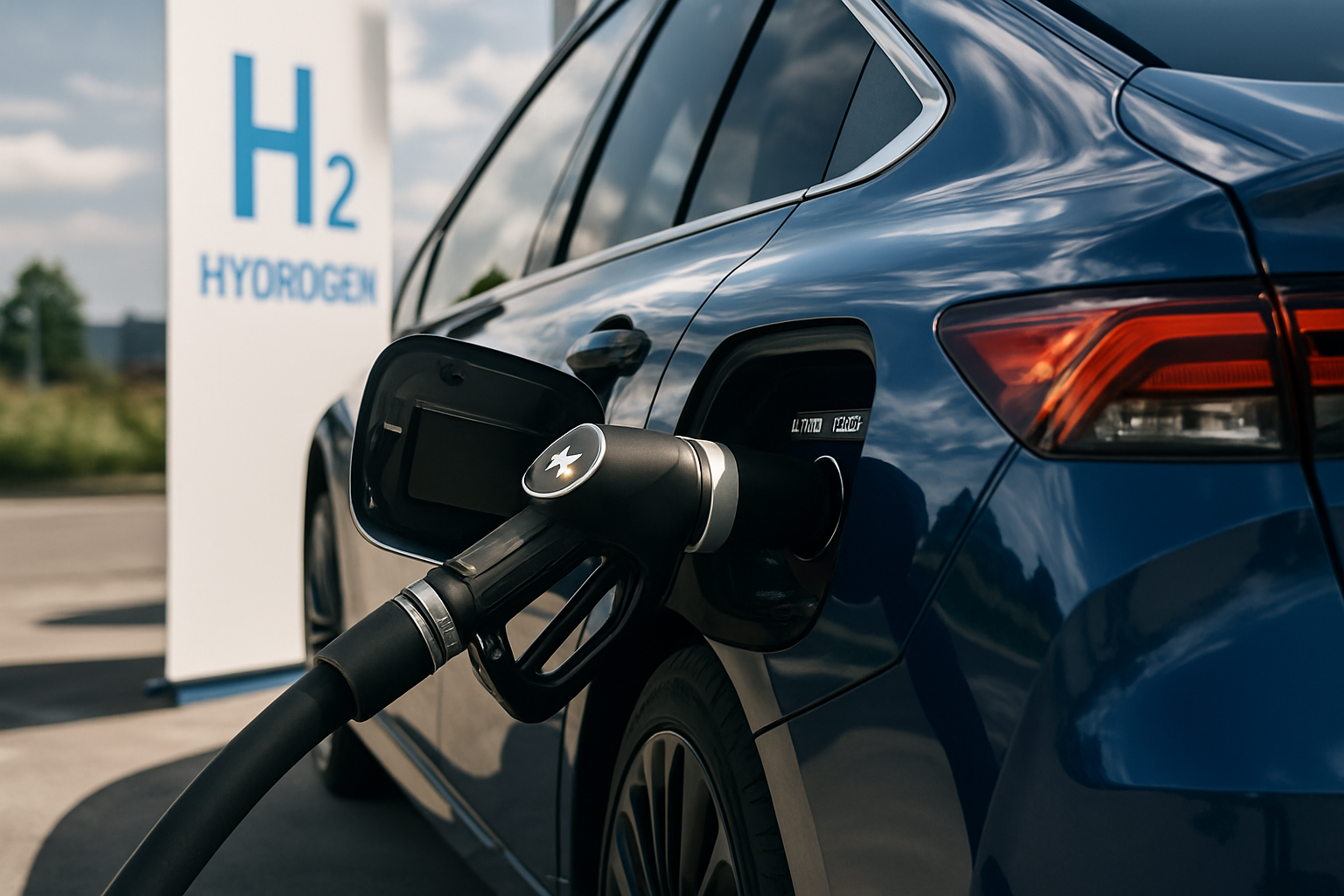Hydrogen Fuel Cells: The Next Frontier in Automotive Power
From the early days of the horseless carriage to the modern marvels that grace our roads today, automotive technology has continually evolved. As we stand on the precipice of a new era in transportation, one innovation stands out as a potential game-changer: hydrogen fuel cells. This cutting-edge technology promises to revolutionize the way we power our vehicles, offering a clean, efficient, and sustainable alternative to traditional combustion engines.

A Brief History of Hydrogen in Automotive Applications
The concept of using hydrogen as a fuel source isn’t new. In fact, it dates back to the early 19th century when Swiss inventor François Isaac de Rivaz created the first internal combustion engine powered by hydrogen. However, it wasn’t until the late 20th century that automotive manufacturers began seriously exploring hydrogen fuel cells as a viable alternative to gasoline engines.
The Advantages of Hydrogen Fuel Cell Vehicles
One of the most significant benefits of hydrogen fuel cell vehicles is their environmental impact - or lack thereof. The only byproduct of a hydrogen fuel cell is water vapor, making these vehicles truly zero-emission. Additionally, hydrogen fuel cells offer impressive range capabilities, often exceeding 300 miles on a single tank, and can be refueled in minutes, addressing two of the most common concerns with battery-electric vehicles.
Challenges Facing Hydrogen Fuel Cell Adoption
Despite their promise, hydrogen fuel cell vehicles face several hurdles to widespread adoption. The most significant is the lack of infrastructure for hydrogen production, distribution, and refueling. Currently, there are only a handful of hydrogen fueling stations in operation, primarily concentrated in California and select urban areas.
The Role of Government and Industry in Promoting Hydrogen Technology
Recognizing the potential of hydrogen fuel cells, governments and industries worldwide are investing heavily in research and development. Countries like Japan, South Korea, and Germany have made significant commitments to developing hydrogen infrastructure and promoting fuel cell vehicles. In the United States, California has been at the forefront of hydrogen adoption, offering incentives for fuel cell vehicle purchases and funding the construction of hydrogen fueling stations.
Hydrogen Production: The Key to Sustainability
For hydrogen fuel cells to truly be a sustainable solution, the production of hydrogen itself must be environmentally friendly. Currently, most hydrogen is produced through steam reforming of natural gas, a process that still results in carbon emissions. However, researchers are exploring more sustainable methods, such as electrolysis powered by renewable energy sources like wind and solar.
The Future of Hydrogen in the Automotive Industry
As technology advances and infrastructure improves, hydrogen fuel cells are poised to play an increasingly important role in the automotive landscape. While they may not completely replace battery-electric vehicles or internal combustion engines, they offer a compelling alternative, particularly for long-range travel and heavy-duty applications like trucking and public transportation.
Comparing Hydrogen Fuel Cells to Other Alternative Fuel Sources
When considering the future of automotive power, it’s essential to compare hydrogen fuel cells to other alternative fuel sources. While battery-electric vehicles have gained significant traction in recent years, hydrogen fuel cells offer advantages in terms of refueling time and range. However, the current lack of infrastructure puts them at a disadvantage compared to the growing network of electric charging stations.
The Impact on the Automotive Supply Chain
The shift towards hydrogen fuel cell technology will undoubtedly have far-reaching effects on the automotive supply chain. From new component manufacturers to changes in raw material demands, the industry will need to adapt to support this emerging technology. This transition presents both challenges and opportunities for established automotive companies and newcomers alike.
Consumer Perception and Adoption
As with any new technology, consumer perception and willingness to adopt will play a crucial role in the success of hydrogen fuel cell vehicles. Education and awareness campaigns will be essential to help consumers understand the benefits and address any concerns about safety or practicality. As more manufacturers introduce hydrogen-powered models and infrastructure improves, we can expect to see increased consumer interest and adoption.
In conclusion, hydrogen fuel cells represent a promising frontier in automotive power. While challenges remain, the potential benefits in terms of environmental impact, performance, and sustainability make this technology worth watching. As we move towards a cleaner, more efficient future of transportation, hydrogen fuel cells may very well play a pivotal role in shaping the cars of tomorrow.






